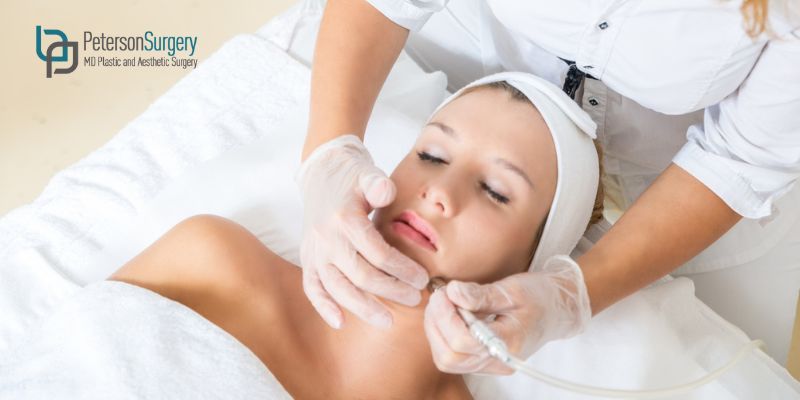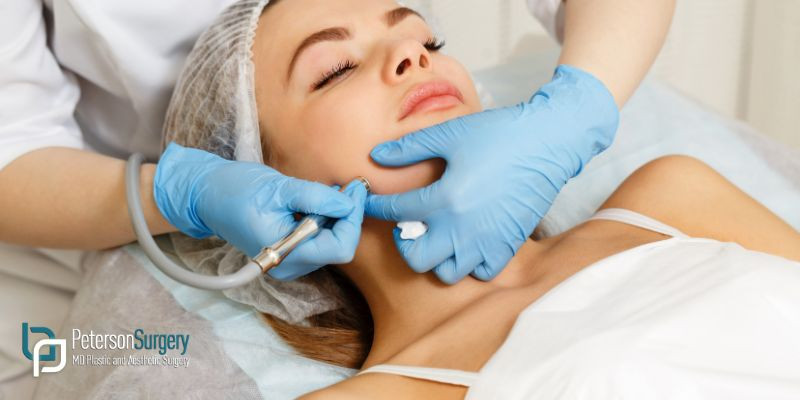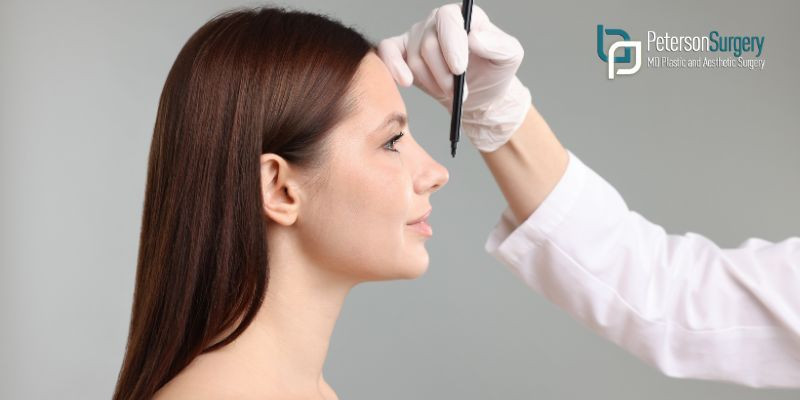Deciding If Dermabrasion Is Right For You
Dermabrasion is a cosmetic plastic surgery procedure that improves the appearance of the skin by removing the outer layers through controlled abrasion. It is commonly used to reduce the visibility of scars, wrinkles, and other imperfections, resulting in smoother and rejuvenated skin. However, it is important to remember that not everyone is an ideal candidate for this treatment. To ensure optimal results and minimize potential risks, certain factors must be considered to determine if dermabrasion is suitable for you.
Skin Type:
The first consideration when assessing candidacy for dermabrasion is your skin type. This procedure tends to work best for individuals with fair to medium skin tones. Darker skin types may be at higher risk for pigmentation changes or uneven skin tone after dermabrasion. Your plastic surgeon will evaluate your skin type and discuss the potential risks and benefits specific to your complexion.
Medical History:
Your medical history plays a significant role in determining your eligibility for dermabrasion. Inform your plastic surgeon about any existing skin conditions, such as eczema, psoriasis, or active acne outbreaks. Disclose any previous skin treatments or surgeries you have undergone, as this information will help your doctor assess whether dermabrasion is safe for you.
Current Medications:
Certain medications can interfere with the healing process after dermabrasion and increase the risk of complications. It is important to inform your plastic surgeon about any medications you are currently taking, including over-the-counter drugs, supplements, and topical skin care products. This includes medications that thin the blood or increase the skin's sensitivity to sunlight, such as blood thinners or retinoids.
Realistic Expectations:
Having realistic expectations is crucial when considering any cosmetic procedure, including dermabrasion. Understand that while dermabrasion can achieve significant improvements in the appearance of your skin, it may not completely eliminate all imperfections or guarantee perfect results. Discuss your treatment goals with your plastic surgeon to ensure that they align with what dermabrasion can realistically achieve.
Avoiding Sun Exposure:
Sun protection is essential before and after dermabrasion. If you are unable or unwilling to avoid sun exposure or commit to strict sun protection measures, such as using sunscreen and wearing protective clothing, you may not be an ideal candidate for dermabrasion. Sun exposure can increase the risk of complications, pigmentation changes, and slow down the healing process.
Overall Health:
Your general health plays a significant role in determining your eligibility for dermabrasion. If you have any underlying medical conditions or compromised immune system, your plastic surgeon will carefully evaluate whether dermabrasion is safe for you. Open communication about your overall health is crucial in assessing candidacy and ensuring your safety during and after the procedure.
Reveal Healthy, Younger-Looking Skin With Dermabrasion At Peterson MD
Determining your candidacy for dermabrasion requires careful consideration of several factors, including skin type, medical history, current medications, realistic expectations, sun exposure habits, and overall health. Consulting with a qualified plastic surgeon is essential in assessing your eligibility for dermabrasion and making an informed decision about the best course of action to achieve your desired skin rejuvenation.
To explore your options for skin rejuvenating plastic surgery in the Okanagan, book a complimentary consultation with Kelowna’s top plastic surgeon. Contact us at (250) 868-9099 or through our online contact form.
Dr. Brian Peterson at Peterson MD in Kelowna is a board-certified plastic surgeon with extensive medical training and specialization in Plastic, Aesthetic, and Reconstructive Surgery. With the extensive knowledge and skill of Dr. Peterson, along with the knowledgeable staff at Peterson MD who are committed to providing patient education, you can feel confident in the results of your cosmetic surgery.
FAQ
Q: How long does the healing process after dermabrasion typically take?
A: The healing process after dermabrasion can vary depending on individual factors and the extent of the treatment. Generally, it takes several weeks for the skin to fully heal and reveal the final results. Patience and following post-treatment care instructions are key to achieving optimal healing.
Q: Can people with darker skin tones undergo dermabrasion?
A: While dermabrasion can be performed on individuals with darker skin tones, there is a higher risk of pigmentation changes or uneven skin tone. It is essential to consult with a skilled plastic surgeon experienced in treating diverse skin types to assess the potential risks and benefits specific to your complexion.
Q; Are there alternative treatments to dermabrasion for skin rejuvenation?
A: Yes, there are alternative treatments to dermabrasion for skin rejuvenation. Microdermabrasion, chemical peels, laser resurfacing, and dermal fillers are some options that can address similar skin concerns. Consultation with your plastic surgeon will help determine the most suitable treatment based on your specific needs and goals.






